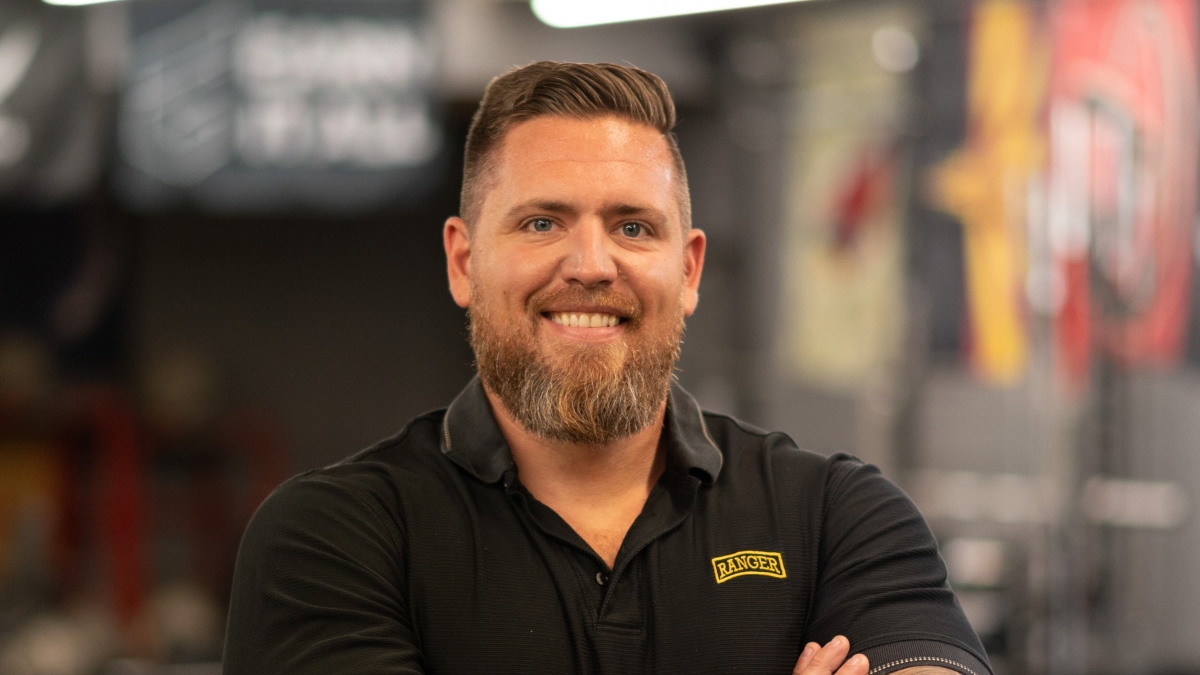Fitness helped combat vet, ASU alum readjust to civilian life

Rich Mulder, a combat veteran and College of Health Solutions alumni, helps fellow veterans adjust to civilian life through fitness. Mulder is an alumni-sponsored runner this year for the 20th annual Pat’s Run. Courtesy photo
By Aidan Hansen
Army combat veteran and Arizona State University College of Health Solutions alumni Rich Mulder found fitness helped him transition back to civilian life. Now he supports his fellow veterans by offering them the same opportunities.
Mulder is an alumni-sponsored runner this year for the 20th annual Pat’s Run, a 4.2-mile-long fundraising run hosted by the Pat Tillman Foundation. Former ASU football player and combat veteran Pat Tillman's jersey hangs in the gym Mulder owns and operates. Tillman was a role model to him.
“I think what he sacrificed and what his family sacrificed is just so inspirational,” Mulder said.
Pat’s Run: ‘20 Years: One Legacy’
Pat’s Run celebrates second decade in Tempe
Saturday, April 13
Tempe
Like many veterans, Mulder first thought about joining the U.S. Army after 9/11. He was just 13 when it happened.
“I just remember that day being like, 'Oh, I'm going to join the Army as soon as I'm of age,'” Mulder said.
He attended the U.S. Military Academy at West Point, where he earned a bachelor’s degree in military history.
“It was the most incredible place I'd ever been at that point,” Mulder said. “I knew at that point, I was like, I have to go here. I didn't apply to any other service academies, and I just pursued West Point and made it happen.”
After serving in the Army, Mulder found the transition to civilian life difficult, but says fitness was the biggest thing that helped him. Wanting to become a fitness coach led Mulder to pursue a master’s degree in exercise and wellness at ASU's College of Health Solutions. He graduated in 2016.
In 2017, Mulder started his gym, Liberty Performance Training. The gym also hosts a chapter of the organization Merging Vets & Players, which hosts a support group there every Wednesday at 6:30 p.m. The organization brings combat veterans and former professional athletes together and helps with personal development and difficult transitions.
“Our coaches take them through a workout, and then what's really powerful about it is after the workout, they have a huddle,” Mulder said. “At this huddle, it's just pure support.”
During the huddle, members talk to each other about life experiences, personal traumas and difficult life transitions.
“They have support now, and they have these peers around them that are helping them, and they finally feel supported again,” Mulder said.
Mulder is also a part of Quality Resilience Fitness. This organization aims to help combat veterans through fitness by providing a community for veterans and continuing the fight against veteran suicide.
With running a gym and participating in veteran organizations, Mulder says finding the time for everything can be hard, but giving back is the biggest reward.
"I get a lot of personal reward from doing this,” Mulder said. “I won't always be able to do everything, but I just ... try to show myself a little grace and just try to keep going.”
More Health and medicine
Leading the way in wellness: ASU highlighted in The Princeton Review's 2025 Mental Health Services Honor Roll
Being a college student isn’t easy — navigating new routines, people and places can be a challenge, especially if the right support system is not in place. That's why Arizona State University is a…
New Indigenous health dashboard offers robust database for scholars
By Nicole Greason and Kimberly Linn A team at Arizona State University’s College of Health Solutions and American Indian Studies program has created a new tool to aid researchers…
College of Health Solutions program doing its part during Salute to Service
It wasn’t always easy for Marine veteran Chuck Hale when he first returned to civilian life. But he’ll never forget the help he received from a fellow former service member.“The first vet that helped…